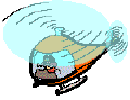englandboy – John
Forum Replies Created
-
AuthorPosts
-
englandboy – John
ParticipantDennis, your avatar, is that really you? Man your hair grew quick 😆 😆 😆
Whoever it is………….she is one lovely lady.
Ohhh, to be young again 😆

englandboy – John
ParticipantI`m lost? 😕

englandboy – John
Participantavatar adjusted as requested 🙂 using microsoft picture manager 🙂

englandboy – John
ParticipantI`m going to have to say g`night, it`s time for me to dream about food and stuff that begin with the letter `N` 😆
Catch you all later………bye 😉

englandboy – John
ParticipantMan, you love your `N` 😕
nuts & raisins mixed fruit bowl

englandboy – John
ParticipantHey OC, peggy ended with `Y`

englandboy – John
ParticipantNutty fruit cake 😉

englandboy – John
ParticipantI didn`t log out 😕 but I`ve had to log in again 😕
Yes the above post is mine 🙄

englandboy – John
ParticipantEn s?nn en 🙂

englandboy – John
ParticipantFor some reason I got signed out and had to sign in again…
The above post is mine 😉

englandboy – John
ParticipantNeon Iguana & French Fries 😉

englandboy – John
ParticipantNagel Nectar 😉

englandboy – John
ParticipantVery Good 😆 😆 😆

englandboy – John
ParticipantNew Chicken Stew 😉 😆

englandboy – John
ParticipantThere are many different types of Geordie dialects depending on what part of the River Tyne you live (no, not on the river silly 😆 )
The description of where the word/people `Geordie`s` came from:
Many newcomers ask about the origin of the name, and receive varying answers each month. This time, some details pertaining to two of the common explanations. The first is by Chris Rockliffe, and follows immediately below. The second is by Jeff, who offers the comment that most of these explanations are apocryphal, and offers an alternative version which is equally so, in the best tradition of Scott Dobson.
Chris:The origins of the term ‘Geordie’ as a nickname for George are Scottish. Likewise, the first common usage of the term ‘geordies’ to describe the citizens of Newcastle – are also of Scottish origin.
Newcastle was attacked, surrendered and occupied for 3 years by a Scottish army from 1644-47 and again in 1648-49. In 1644 they deliberately paralysed the coal industry, on which London and the South East relied for cooking, heating and which the NE relied for its living etc. More than a thousand collier brigs were tied up under guard and the river at Tynemouth was guarded by armed ‘Scottish’ vessels. The 1000+ keel boats which ferried coal from upstream collieries down to Jarrow were also redundant. Charles I, who finally fled to Newcastle and was held prisoner there again by the Scots, was eventually handed over in return for what now would be many millions of pounds. Charles was taken to London and later executed and the Scottish army retreated back to Scotland. But the citizens of Newcastle – particularly the keelmen and the miners on both sides of the river – never forget and never forgave those Scottish army Presbyterian zealots and their vicious antics. That occupation of Newcastle changed – without doubt – the face of English history.
In circa 1688-1690, the first failed Jacobite Rebellion (Claverhouse), and the later Glencoe Massacre, fostered a new generation of Scottish Jacobites. After the Act of Union in 1707 which put a political line under the Stuart claims, Jacobite support mushroomed, and spread into Northumberland’s petty aristocracy too. Among the Jacobite movement’s names for George I were ‘Wee Geordie of Hanover’, ‘The wee German Lairdie’ and ‘The Wee German Geordie’. – these names, among others much more vulgar, were immortalised in their many political songs. (Scottish folk music is full of them) In 1715, ‘The Old Pretender’ (the Stuart heir) arrived in Scotland from France to build up an army to take on George I.
There was support in Northumberland, but little or none in Newcastle – the first major English city and a prime target again. Stories of the atrocities committed by that Scottish army two generations earlier, had been passed down among Tynesiders. The keelmen were a powerful lobby and anti-Scottish to the hilt – for reasons outlined earlier. They saw to it that no Jacobite support grew in the town and there were many beatings of suspected Jacobite sympathisers on the streets of the town. An extra garrison of Hanoverian soldiers were sent to Newcastle and the incredibly strong city walls were prepared for attack. The Scottish and English Jacobites started referring to the citizens of Newcastle as ‘George’s men’ or ‘Wee Geordie’s men’. That attack never came, the 2nd Jacobite rebellion fizzled out, ‘The Old Pretender’ went back to France and the leading Northumbrian contingent were executed or fled.
The Jacobites didn’t go away. By 1745, the ‘Old Pretender’s son ‘The Young Pretender’, Charles Edward Stuart (Bonnie Prince Charlie) also came over from France intending to do to George II, what his father had failed to achieve with the George I – Wee Geordie of Hanover. The third and final Jacobite rebellion was now underway. From Glenfinnan he marched on Edinburgh, failing to take the Castle and setting up at Hollyrood Palace. Newcastle’s walls and city gates were prepared for battle and mounted with cannon in readiness. The Pilgrim Gate, Newgate, Sallyport and Pandon Gates were walled-up, (creating huge inconvenience).
The citizens formed a militia to strengthen the army numbers, arming themselves with anything they could find. They were now calling themselves ‘Georges Men’ and as a rebuttal to the Jacobites, they adopted the term ‘Geordies’. Charles’ 5000-strong army marched down through Northumberland until they got to about Morpeth, grabbing food, livestock and allegedly the odd woman or two as the fancy took them. General Wade’s Newcastle garrison tried to chase after them, heading for Hexham, but got their cannon bogged down in the mud and had to give up the chase. (That’s why the ‘military road’ was built by Wade a year later, ironically using stone from Hadrian’s Wall in the foundations – built to keep out the Scots 1700 years earlier).
Newcastle was not attacked. Thinking better of it, Charles ordered his army west and over to Carlisle where they attacked that town and then Preston, eventually reaching Manchester where they hoped to gather support locally as well as from Irish and Welsh contingencies. No support was forthcoming. Liverpool was firmly Hanoverian too. Eventually he reached Derby and shagged out as they now were, he ordered them back to Scotland. (Cumberland’s forces were just moving out from Lichfield where they were stationed.) Charles came back up the west coast with his army.
A couple of months later Cumberland’s forces crossed the old Tyne bridge (the old one with the houses on it) on his way up to what would become the infamous Battle of Culloden. As he drove with his army through the town to their billet on the Town Moor and past the ecstatic waving crowds, he was taken aback with the response. The keelmen again were out in force to add their support. Why were they cheering him so avidly?, he enquired. “These are the ‘Geordies’ Sir”, he’s reputed to have been told. The term ‘Geordies’ was now firmly on the NE map.
With King Georges I, II, III, and then IV, many boys were christened George and nicknamed ‘Geordie’. In 1812, there was a huge gas explosion at the Felling Pit – killing 93 people. A local vicar, Rev. Hodgson wrote to the local and National press pleading for someone to find a solution. Two men took up the challenge. One was an eminent London scientist, Humphrey (later Sir) Davy, and a local mining engineer (later father of the railways) George (later Sir) Stephenson.
Davy conducted experiments at Hebburn Colliery, while Stephenson worked not far away at Killingworth Colliery. Both men came up with similar safety lamp solutions. However Stephenson had his in production and in daily use – down the pits themselves – before Davy. When Davy got the accolades and Knighthood for his life saving invention, N.E. miners were quite rightly incensed. In true geordie fashion, they boycotted the ‘Davy Lamp’ as it was called, and insisted on using the Stephenson lamp, which they christened the ‘Geordie Lamp’. This furore got national press coverage and further strengthened the use of ‘Geordie’ as a generic nickname for Tynesiders.
We then had in the 20th century King George V. and VI to further popularise the name George and its associated NE nickname Geordie – already very very popular on Tyneside. There were also other famous Geordies such as Geordie ‘Geordie’ Ridley in the 1860’s, who wrote ‘The Blaydon Races’ amongst other famous NE songs.
Jeff writes from North Shields:
The origin of the Geordie Nation can be traced back to North Shields 1202, at this time there was a local family living on the land that would in hundreds of years time become known as the Ridges (perhaps better known as the Meadowell which was made famous some years back when they decided to have bona night a bit early). This family had 9 kids and one of them named George was coming up to his 18th birthday and told his parents that he wanted to become a fisherman and as such would build a small boat and a house down on the banks of the Tyne… So George (known to his mates as Geordie) went ahead and built his boat and house, at that time there was no other properties on the banks so this part of Shields quickly became known as Geordies. Over the years and with prosperity Geordie got married and had 11 kids of his own and naturally as time went by they set up home in different parts of North Tyneside and when they were ever asked, “who are you”, they would reply “we’re Geordies kids” and as dad (Geordie) was well known on Tyneside this would let people know who they were. I’m sure you can then see that this in Geordie translates as “wa Geordies lyke”, and it was not long before every one from Shields/Tyneside became known as Geordies.

-
AuthorPosts